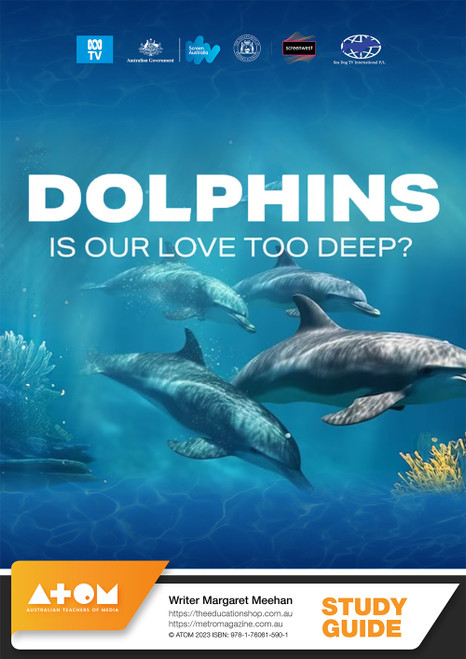Product Overview
Dolphin Mania tells the story of a coastal community outside Melbourne, Australia where a small number of operators - with differing philosophies - are licensed to run dolphin swim tours. A code of practice has been established to protect the dolphins. But these regulations are rarely policed leaving the operators to enforce the law amongst themselves.
Judy Muir and her family run the boat Polperro and set off twice a day from Sorrento pier. When the dolphins appear the passengers hang onto buoy lines and squeal with delight as the mammals leap and cavort nearby. Such encounters are euphoric and research has shown that the result can be therapeutic - particularly for those suffering from illnesses or emotional disorders.
But Judy worries about what impact the tours may be having on the animals.
The Dolphin Research Institute has found that when the tour boats approach the dolphins, their behaviour changes markedly.
They may alter direction, call out more frequently to each other or even send out a decoy dolphin to interact with the boats while the rest swim away. On a busy day, tour boats are interacting with the dolphins every 90 seconds. No one knows what long-term implications may result from this constant disturbance.
Judy and her son Troy now face a daily dilemma. How can they introduce people to the marine environment without turning it into a theme park?
Dolphin Mania explores the viability of nature based tourism through the experience of a small community of tour boat operators.
Curriculum Links
The film is relevant to students in both Secondary and Tertiary Institutions. It could be used to explore the learning outcomes in level 6 of the CSFII for SOSE. Here, the case of the management of the animal resources of the Bay in one local community can be examined in terms of the need for an ecologically sustainable tourism industry. The film is equally applicable to Unit 3 of VCE Geography where it could be used as an example of the development and use of a resource for commercial gain. Other subject areas where the film could be used would include social sciences, and environmental science.
Tertiary students would find the film beneficial in courses relating to Tourism, Ecotourism, Natural Resource Management, Environmental Politics, Environmental Ethics and Environmentalism.







